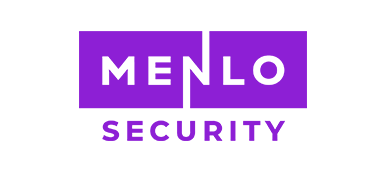product
- Menlo Security Secure Internet (Web isolation)
- Menlo Security Secure Office 365/Secure G Suite (Email isolation)
- Menlo Security Global Cloud Proxy
- Menlo Security Insights
- CASBs
- DLP
- Mobile Isolation
- Secure Application Access (formerly: MPA)
- HEAT Shield
- SSE
- Secure Enterprise Browser
- VOTIRO File Sanitization Solution
Specifications/Technical Information

Menlo Security
Menlo Security
Shikoku Electric Power Co., Inc.

Realizing a safe and comfortable web environment for 13,000 employees from 11 group companies
Key points for implementation
- Slow response and troublesome VDI replaced with Menlo Security
- Enables safe web use for 13,000 people across 11 group companies
- Smooth web usage has improved business productivity and reduced operational burden

Information Systems Department
Deputy Director and System Planning Group Leader
Mr. Yuji Murakami

Information Systems Department
Security Management Group Deputy Leader
Mr. Hiroshi Izutsu
The slow response of the existing VDI is a problem, and problems occur, causing disruption to business operations.
Shikoku Electric Power Co., Inc. operates retail electricity and power generation businesses mainly in the Shikoku region. In recent years, with the aim of creating new value that will become a source of future revenue, the company has expanded its business domain into various fields, and is diversifying its business into international businesses, primarily overseas power generation businesses, and tourism businesses with an eye on capturing inbound demand.
In 2019, the company introduced VDI, which runs in an on-premise environment, as part of its security measures to protect important social infrastructure. It established a system that protects terminals from threats such as unauthorized access from the web and malware infections, and allows users to use the internet in an isolated environment. However, as the system continued to be used, various problems arose, which became a business issue. Regarding this point, Izutsu Taishi, deputy leader of the Security Management Group in the Information Systems Department, said, "VDI was used by 11 companies, including group companies, and about 13,000 people, but gradually, complaints of slow response times began to come in. Especially since the COVID-19 pandemic, the number of opportunities to hold web conferences has increased, and the shortage of resources has become evident." Murakami Yuji, deputy general manager of the Information Systems Department and leader of the System Planning Group, also said, "After 9am, there were cases where people could not log in immediately even if they wanted to look something up on the web. Because resources are fixed, if you log in on a first-come, first-served basis, the later you log in, the more resources there are and the more difficult it becomes to use."
The company's VDI was a large-scale project using more than 50 servers, but because it was an on-premise environment, it was not easy to increase resources, as it required procuring hardware, securing space to install racks, and adding power sources. However, in departments that handle customer service, such as call centers, not being able to use the web would disrupt business operations and be stressful for users. The company had tried to deal with this by tuning the system, but after the fourth year, it could no longer keep up, and there were cases where the system stopped working altogether. Furthermore, from the spring of 2023, the system load would suddenly increase about once a week, making it unavailable, and this continued for two months. The company was in a difficult position, so they investigated the cause and contacted their vendor, but were unable to find a solution.
There were various other issues with VDI. One was the double effort required to use a browser. When a user wanted to use the web, they first had to access RDS to use VDI. From there, they had to launch a browser, which took about 30 seconds, making it difficult to say it was comfortable to use. There was also a large burden on maintenance; for example, when applying security patches, the work had to be done for each server, which placed a heavy burden on the person in charge.
"We don't just use VDI ourselves; we also provide it as a service to group companies, so any problems that occur are a major issue. Our servers were due for renewal in 2025, but we decided to revamp our system ahead of schedule," says Murakami.
The system operates smoothly even with 100,000 users. Menlo Security's extensive track record is highly evaluated.
Shikoku Electric Power began considering a system to replace VDI in May 2023. The three points that were emphasized at this time were whether the system could meet the company's requirements, as well as cost and vendor reliability.
"Initially, we didn't limit ourselves to on-premise or cloud, and came up with about five candidates to compare. However, we had had a bad experience with an on-premise environment, and we wanted to introduce the service quickly, so we thought that cloud, which doesn't require procuring physical equipment, would be the best option," said Izutsu.
In addition, when system load fluctuates greatly, on-premise systems require resources to be reserved for peak times, which is a wasteful investment during normal times. On the other hand, cloud computing has the advantage of being able to optimize investments, since resources can be procured only when needed.
Given these benefits, the company narrowed down its options to cloud services, comparing Menlo Security with another company's product. Ultimately, they decided to adopt Menlo Security. Murakami explains the reason for this: "The security functions were comparable, but Menlo Security's track record with large-scale users was overwhelmingly superior. Our existing VDI had major problems with performance, so we felt that Menlo Security, which has a track record of operating without problems with a user base of 100,000 people, would be more reliable."
The company decided to adopt Menlo Security in June. Implementation began in the Information Systems Department in October as a verification test, and the scope was gradually expanded. The implementation work was carried out by STNet, a systems subsidiary of Shikoku Electric Power, with the cooperation of Mitsui Knowledge Industry Co., Ltd. (MKI). The rollout to the head office was completed in May 2024 (approximately 6,000 users), and in September, the rollout to 11 companies (approximately 13,000 users), including group companies, was completed as scheduled.
"Many people participated in this project, including the Company, our subsidiary STNet, the developer Menlo Security, and distributor Macnica, and MKI's excellent coordination enabled the work to proceed smoothly. the Company company also has multi-stage security measures in place, including a content filter, and repeated testing was done to ensure there were no conflicts with this, which allowed us to complete the work without any issues," said Izutsu.
Slow response times have been completely eliminated. Work productivity has improved and operational burden has been reduced.
By introducing Menlo Security, Shikoku Electric Power completely eliminated their biggest issue of slow response times. They have been able to carry out their work smoothly. For example, as a company that handles the important infrastructure of electricity, many users check meteorological information at the same time when a typhoon or other disaster approaches, and in the past, there were cases where the connection was interrupted due to high access rates. This has now completely stopped.
"With our existing VDI, it took about 30 seconds to launch a browser. If you multiply that by the number of users, it amounts to a significant amount of time wasted every day. Eliminating this issue has allowed us to work without stress, and has also improved productivity," says Murakami.
Another major benefit is the ability to download files directly from the web.
"Previously, files had to be downloaded to the VDI environment and then copied before they could be used. Now that we can download them directly, convenience has improved. Also, with web separation, web pages are rendered on the cloud side, so there's no problem with the screen display displayed to the user," says Izutsu.
Since implementing Menlo Security, the number of inquiries to the systems department has also decreased significantly.
"Previously, when we had freezing problems, we would be inundated with over 100 inquiries each time, but that has now disappeared and our workload has been significantly reduced. We are also grateful that there is no need to educate users when introducing the system. Generally, when introducing a new system, it is natural to create a procedure manual and provide some kind of user education, and you also need to consider the time frame for this. In this regard, with Menlo Security, all you need to do is set up an ID," says Murakami.
Considering integrating security functions into Menlo Security. Expecting Macnica to introduce effective solutions and MKI to provide detailed support.
While they are still in the planning stage, they plan to consider measures with a view to responding to zero trust as the use of cloud services expands. Murakami said, "As a company that handles critical infrastructure, we would like to consider incorporating CASB functions into Menlo Security to ensure reliable security. Currently, we are taking measures using multiple products, but if we can rely on Menlo Security in terms of functionality, we would like to integrate them." Izutsu added, "As a distributor with strong ties to security vendors around the world, Macnica handles many products. We hope that they will continue to introduce effective solutions for us. In addition, MKI is very agile and took our requests into consideration in this project. We have many projects in the future, so we look forward to your continued detailed support."


User Profile
| Shikoku Electric Power Co., Inc. | |
| location | 2-5 Marunouchi, Takamatsu City, Kagawa Prefecture |
| Introduction time | September 2024 |
| URLs | https://www.yonden.co.jp/ |
| Founded in 1951, this electric power company is headquartered in Takamatsu, Kagawa Prefecture, and engages in electricity retail and power generation businesses, mainly in the Shikoku region. Currently, it owns 63 power plants with a total generating capacity of 5,332,000 kW. In recent years, it has been actively promoting business diversification, expanding into various fields such as tourism and information and communications. In the summer of 2027, a jointly invested LLC will be the operating entity in two locations in Kagawa Prefecture, and luxury hotels will be operated by the Mandarin Oriental Hotel Group. | |
Inquiry/Document request
In charge of Macnica Menlo Security
- TEL:045-476-2010
- E-mail:menlo-sales@macnica.co.jp
Weekdays: 9:00-17:00
